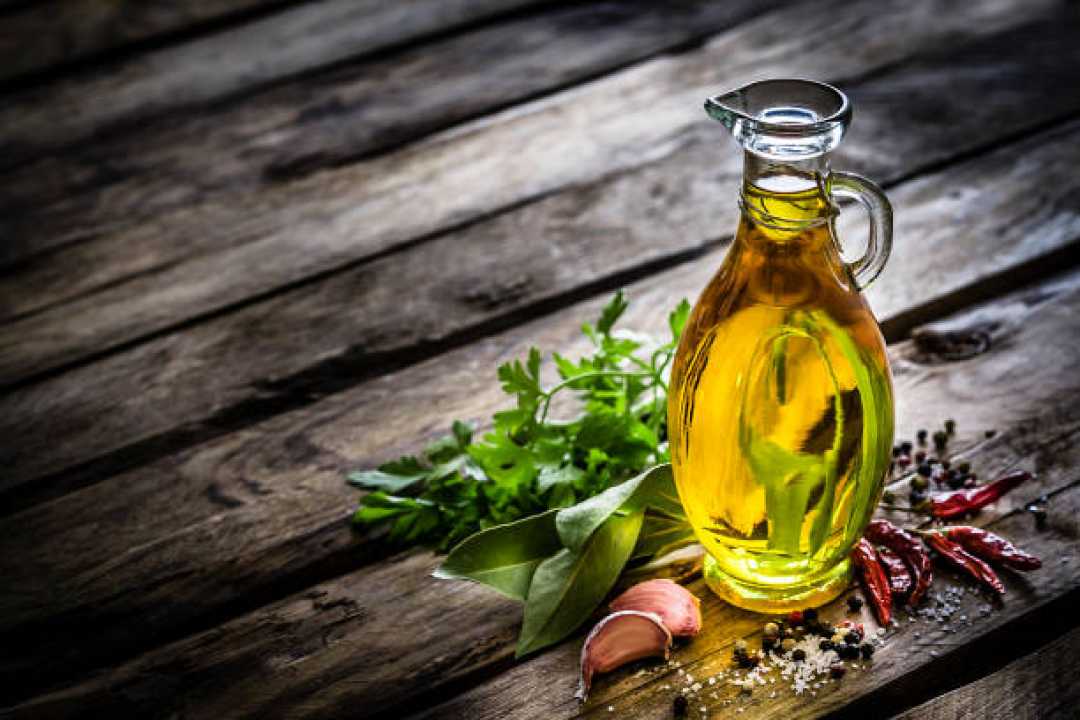Tips On How To Store Oils To Prevent Rancidity

Rancidity is the deterioration of fats and oils that causes unpleasant odors and less than desirable flavors. This can occur from exposure to certain microbes as a result of poor food handling and hygiene. More often oil rancidity occurs when oil is exposed to oxygen resulting in the formation of free radicals
These free radicals contribute to the change in taste and smell of cooking oils. Despite the decrease in quality, rancid oil does not generally make a person sick if consumed. Many environmental elements in the household can cause oils to develop these free radicals:
- Light: Sunlight or light from lamps support the production of free radicals
- Temperature: Higher temperatures increase the rate at which oil oxidizes
- Time: Regardless of external factors, oil will go rancid eventually. It is good to use it in a timely manner.
- Opened containers of oil are best if used within 2-3 months while unopened oil is good for up to 4 months.
- Air: Be sure to re-cap the container after each use. Store your oil in a dry, dark place at room temperature. This will reduce the amount of light, heat and air that increases the rate of rancidity described above. This will also preserve the flavor and smell. Also, buy oils packaged in dark or colored containers. Be sure not to leave your oil in the refrigerator; Moisture will also increase the rate of rancidity.
The oils we use typically fall into two categories of unsaturated fats. Monounsaturated fatty acids are found in olive oil, canola oil and sunflower oil. Polyunsaturated fatty acids are found in sunflower, soybean and cottonseed oils. Both reduce the risk of heart disease and stroke by reducing levels of LDL, or “bad” cholesterol, in the blood.
Omega-3 fatty acids specifically support heart health by lowering blood pressure and the risk of blood clots.
Unsaturated fats such as olive oil, vegetable oil and canola oil are a staple in many households. Olive oil is known to have the highest content of monounsaturated fats. These oils are commonly found on our shelves, ready to use in our delicious recipes and dishes. They seem to last forever.
READ ALSO » 5 Natural Oils Good For Your Skin: Unlocking The Power Of Nature
On the contrary, if not stored properly, the oil can become rancid. Pure vegetable oils are common in cooking and baking. Their light, neutral flavor makes them highly versatile and the unsaturated fats in vegetable oil have been embraced for their potential health benefits. Unfortunately, unsaturated fats are more prone to spoiling and turning rancid than saturated fats are.
A few simple tips can help prolong the life of your cooking oil, especially if it is to be saved and reused.
Tips On Preventing Rancidity in Fresh and Used Oil
- Store cooking oils out of direct light
- Reduce the use of salt in fried foods
- Avoid using liquids or liquid seasonings in frying oil
- Filter used oil through several layers
1. Store cooking oils out of direct light
Especially direct sunlight. Light can break down the oil molecules, causing a deterioration in flavor and eventually distinctly rancid tones. This is why high grades of olive oil are commonly sold in cans or tinted bottles.
Find a cool place to store your cooking oils. It may be convenient to have them directly over the stove, but the heat from cooking will shorten their shelf life. A low cupboard near the stove is Prevent used oil from going rancid
2. Reduce the use of salt in fried foods
if you want to reuse the oil a second time. Salt destroys chemical bonds in oil molecules and accelerates their deterioration.
3. Avoid using liquids or liquid seasonings in frying oil
Liquids also break down the oil molecules. Liquid seasonings also tend to contain salt, which adds to the mess. Foods tend to release their natural juices into the cooking fat when they are almost done, so avoid overcooking.
4. Filter used oil through several layers
Filter used oil through several layers of gauze or absorbent paper after use.
READ ALSO » Tips To Store Ripened Fruits For A Longer Duration
Place the funnel into the mouth of a glass jar or other container and line the funnel with your filter material.
Pour the oil through a strainer into the pot while the oil is still hot. Date the jar and store in a cool, dark place for reuse.
Conclusion
Never cook with oil that is rancid or has an unpleasant odor. When polyunsaturated fats become rancid, they contain molecules called lipid hydroperoxides. These fat l compounds have been identified as damaging to DNA.
